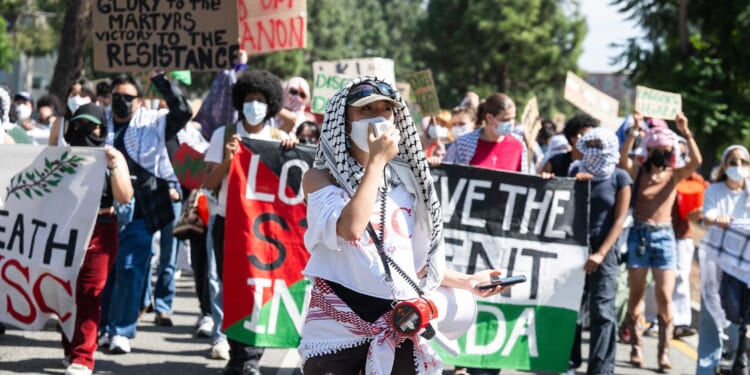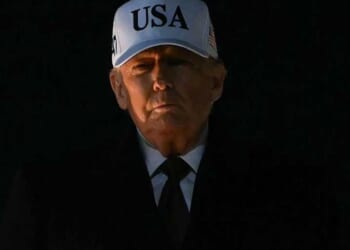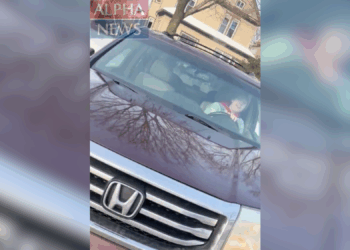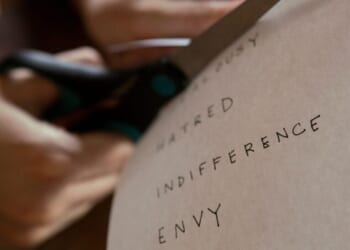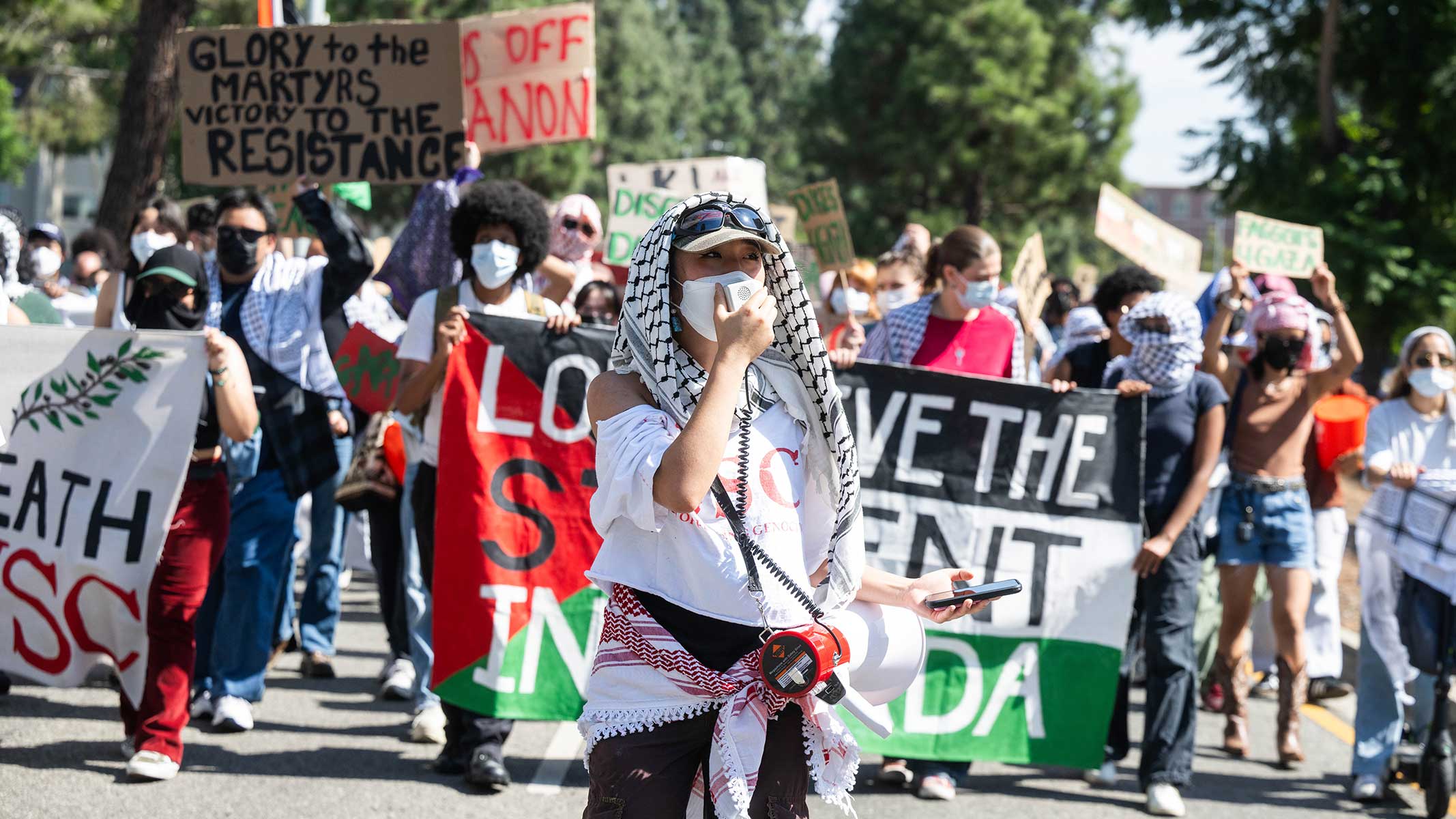
What does a university’s response to terror reveal about its values and its influence on society? On the two-year anniversary of Hamas’s October 7 attacks on Israel, Stu Smith, Neetu Arnold, Adam Lehodey, and Rafael Mangual reflect on national and global reactions to the attacks, especially on American university campuses. Their conversation explores the ideological influence of faculty and campus activism that blurred the line between academic freedom and lawlessness. They also consider how federal funding and institutional incentives shape university behavior.
Finally, a reason to check your email.
Sign up for our free newsletter today.
Audio Transcript
Rafael Mangual: Hello and welcome to another episode of the City Journal Podcast. My name is Rafael Mangual. I’ll be your host for today and I am joined by my brilliant Manhattan Institute colleagues. have Adam Lehodey, Stu Smith and Neetu Arnold. Welcome to the show guys. How was everyone’s weekend? I hope it was as relaxing as mine was, although my Yankees lost two games. So I’m coming into this Monday very disappointed and depressed.
Adam Lehodey: Great to be here.
Rafael Mangual: Well, I really appreciate you guys joining me for this discussion. I’m really looking forward to it. For those of you who are just watching us now, we are recording this on October 6, which means that tomorrow is October 7, the anniversary of the heinous attacks on Israel by Hamas, which took the lives of over 1,200 victims, many of them unarmed men, women, and children. And I think that it’s fair to say a couple years out from that, that that really just totally changed the course of not just Israel’s history, but I also think changed the course of life here in America. And I was hoping that we can all have a conversation about that. When I think about what happened on October 7th, before I even had time to process it, there were already demonstrations taking place here in New York City on October 8th in Times Square, a demonstration which by the way was hosted by the New York City DSA, which I think we can, I hope we can get into. DSA for those who don’t know is Democratic Socialist of America which is the party of New York City’s leading mayoral candidate Zohran Mamdani. So I want to just kind of go around a little bit and get a sense from you all, you know, kind of what your reflections are on this terrible anniversary, what were your initial impressions when that attack took place and sort of what you’re thinking about the legacy of that being for America.
Maybe Neetu, I’ll start with you.
Neetu Arnold: Yeah, I remember feeling sick to my stomach when I saw the gliders on the news because you knew what was going to happen and you saw so many people who were so panicked. And I just remember not taking my eyes off the news for 24 hours at least. It was so horrific. And I think the legacy that we saw here in America, you know, especially at our universities, was that they didn’t have any moral clarity. They were willing to comment on George Floyd and the riots that followed afterwards. They were willing to comment on the Ukraine and Russia war. But when it came to Hamas attacking Israel and the people there, they had nothing to say. And I think that made it very clear to the public how far gone our universities had become.
Rafael Mangual: Yeah, no, I think that’s right. Stu, you’ve probably covered universities as much as anybody in the space, especially over the last couple of years. I think, you know, just looking back on the reactions to the attack and even to the anticipated retaliation by Israel, I mean, a lot of this took place before Israel had even fired a shot in return. But there seemed to be this sort of predetermined posture that was going to be taken in support of the Palestinians in opposition to Israel and the Zionists. You know, and it’s an interesting moment to reflect on this in part because President Trump just announced that there’s a potential peace deal impending, Negotiators are heading to Cairo and he has instructed Israel to cease bombings in Gaza and he has warned Hamas to cease its hostilities as well, which I think is honestly a foreign policy feather in the cap of this administration, another one. But aside from that, mean, just going back to the university point, Stu, I mean, what is your read of like, what is driving this sort of preoccupation with the Palestinian cause in a country that seems to have so little in common with the ideology that drove the attackers on that day? I mean, if you just think about the sort of principles that Hamas stands for, right? It is not a libertarian organization. It does not value freedom. It does not value women’s rights. It does not value gay and lesbian homosexual rights, right? I mean, and yet you have Queers for Palestine marching across college campuses with straight faces. What do we make of this?
Stu Smith: Great question. You know, Judith Butler said that Hamas was a progressive force. How she makes that mental gymnastics is completely beyond me, but they will, and they do. And I think a lot of that stems from the anti-Western animus that animates these movements. And you can look at decolonial theory, you can look at critical theory, and these are academic disciplines that kind of build on criticizing everything that we really love in America whether that is the fact that you can you know make a wonderful life for yourself if you work hard to, you know, the family unit, our belief that you know you can practice whatever faith you want to have, and so these academic institutions have become these hotbeds for these radical ideas that they mainline and give legitimacy to. I remember some of the posters that I was seeing within days, like days after October 7th, were glamorizing the bulldozer going through the gate. And that was the rallying call for students to go protest. really making, like the commentary about the hang gliders, another thing that you would see on posters for student groups. And that letter from the Harvard students where they signed off and spoke highly of resistance, I really think was a straw that broke the camel’s back in a really unique way where we realized, wow. If they’re saying this at Harvard University, you know, there is something completely rotten in academia. I think that alone opened up a whole lot of people’s eyes regarding what was wrong in higher ed.
Rafael Mangual: Yeah, well, I think that absolutely opened people’s eyes. I the other thing that I remember really just not necessarily opening my eyes, right? I mean, I’m in this space. We’ve kind of known that the colleges and the universities have been sick for a really long time. But it still shocked me just how it played out was the congressional hearing involving the presidents of UPenn and Harvard and I think MIT. And there was one other school. Was it Cornell? I can’t remember. But it was incredible to watch these university presidents in the Ivy League sit there and squirm around very simple questions. I mean, these are universities that have penalized all kinds of hate speech, that have policed the things that student groups have said and done, right? I mean, there was an incident, I remember, where some law school kid, I think it was at Yale, got in trouble for a poster advertising a party. The Trap House party, for those of you who don’t remember, you can Google it. It was a big thing. And there was swift discipline brought to bear. The student was made to apologize and grovel. And yet here you had people literally calling for Intifada and chanting for the destruction of Israel and cheering on Hamas, which is a genocidal terrorist organization. And these university presidents couldn’t bring themselves to express the moral clarity of the need to you mentioned.
Adam, I wonder what your sense is just, you know, of the role of that hearing in just sort of shifting the mind of the American public and bringing it on board to this realization that something is very, very wrong in the state of Denmark.
Adam Lehodey: Yeah, well, just as a side note, I was actually a student at Columbia when all of these protests flared up. So I was there. There was a lot of disruption. But one of the things I observed is that it was driven by a very small share of the students that had a very disproportionate impact that were driving these disruptive activities that were doing all of the organizing. And you actually saw that when they had the encampments at Columbia after they expelled or disciplined a couple of the students, they died down very quickly after that. So I think what the hearings highlighted is that the administration had, these university administrations hadn’t done enough to combat this type of extreme behavior that has disproportionate impacts on other students. And it’s one thing to be in favor of free speech and protest and discussion. But it needs to happen… I think what those hearings highlighted is that it needs to happen in a forum that enables other students to learn as well. And it does need to take the concerns of Jewish students seriously. So I think that’s when you really saw that highlighted and when a lot of attention fell on this topic. And then at least my sense is that Colombia did start taking this a lot more seriously, including this past year where you had another disruption and in three hours the NYPD had been called in and the library was reopened the next day. So yeah.
Rafael Mangual: Yeah, I mean, tell me a little bit more about your experience at Columbia because you’re exactly right. You were in the middle of this when all of it kicked off. I mean, what was that like? What was the tenor on campus? You know, what were your Jewish colleagues experiencing? What were they feeling? What were they telling you?
Adam Lehodey: Yeah, there was a lot of disruption. I remember sitting in the classroom and you couldn’t hear the lecturer talking because of protests and chanting outside. After a couple of weeks they closed the school gates and what we realized is that a lot of the people who’d been on campus protesting weren’t even students or weren’t even enrolled at Columbia. And so you still did have those radical students on campus driving some of the activism, but most of it had moved outside the school gates and was being driven by external organizations. I think there was a sense that, especially amongst my Jewish friends, that the university wasn’t taking some of the more extreme rhetoric and chants seriously. And a lot of them did feel neglected by the university for this.
As I said, I think after the hearings, the university started taking this a little bit more seriously, especially as they realized that they could have federal enforcement if they didn’t start to do so.
Rafael Mangual: Yeah, no, I think a lot of people have that sense, right, that some of these universities and colleges have, you know, starting to smarten up at least a little bit in the wake of the, you know, publicity that, the negative publicity that these universities and colleges got. But, you know, let’s not dismiss the possibility that the Trump administration’s cracking down on these universities may have played a role in changing the incentive structure.
Neetu, I wonder what you make of that. mean, you have been a critic of higher education and a scholar in that space for a long time. We’ve kind of operated under this idea that the universities and colleges should be left untouched, right, that they should be off the table for any kind of intervention from a presidential administration or from Congress. But it does seem to be the case that at least some of the pushback seems to have had the desired result.
Neetu Arnold: Yeah, so I think those who say that accountability is not good for universities, you know, they don’t realize that universities are so valuable that we should care about accountability, that they are held to the highest standards, that they value rigor. One thing I will say is I think when we talk about the debate of how the administration is handling the universities and holding them accountable, it goes beyond this framing of, you know, aggressive reform and that universities are untouchable. think a big part of this is just how the administration is holding universities accountable and the methods that they’re using. I think the administration shines best when they have targeted reforms. You know, if they’re going after universities where they’ve, for example, given discriminatory scholarships on the basis of race, it’s a very specific action. Meanwhile, I think the administration is on much shakier ground when they start trying to enforce changes, especially on viewpoint diversity.
You know, for example, requiring Harvard to admit students or to hire faculty based on ideology. And actually, I had the opportunity to talk to Vanderbilt Chancellor Daniel Diermeier, who’s been making some incredible reforms and that interview is on the City Journal website. And I think something that was really important that I took away from that conversation is that it’s really important for universities to build a culture that allows free inquiry. And so some of the ways Vanderbilt has been doing that, know, when they have students that are disrupting campus activities, making sure to discipline them immediately so that the environment is open for all students and all faculty to share their views respectfully. They have courses on campus where they’re discussing very controversial issues. And they also try to make sure that students and faculty groups can bring external speakers without much hurdle. And so I think this is, of course there’s place for state and federal intervention, but there also needs to be initiative from university leadership from the campus community to ensure that there is free inquiry on campus.
Rafael Mangual: No, I think that’s right. I mean, what you’re getting at is an important idea, which is that part of what happens on university campuses is a function of top-down leadership, right? I mean, people are taking their cues from those who are in positions of respect within these institutions. And when Adam mentioned that it was really a small group of people who were driving a lot of the disruptions on the Columbia campus. That doesn’t surprise me for a couple reasons. I mean, one is that, you know, this behavior for anyone who’s seen the videos is obviously antisocial in nature, right? And thankfully, we live in a society where only a small segment of the population is, you know, antisocial to that degree. But antisocial people also respond to incentives and to signals. And, you know, one of the things that I worry about is that, you know, there was this instinct at the outset to dismiss some of this stuff as, it’s just a tiny group of crazy people. We don’t need to pay attention to them, much in the same way that know Antifa was described in the early days of you know the sort of BLM protest era. But the reality is that a lot of these students were not getting these ideas from nowhere, right? I mean a good bit of this was coming from the faculty and Stu, I mean, I just want to come back to you on this because you’ve just done such a great job of documenting the insane radicalism that runs rampant throughout the faculty lounges of these universities and colleges, where you have professors who have tenure and are openly calling for armed revolution, who are, you know, openly celebrating, you know, the death of Charlie Kirk, for example, and, you know, and calling for, you know, silencing of oppositional speech, of hate speech, of fascist speech, right? I mean, you these are terms that they throw around to justify, you know, their behavior, but I mean, I don’t think these students are ever really getting it just out of the blue, right? They’re not coming up with this on their own, at least not entirely. I think a good part of this has to do with the fact that we have allowed these faculty members to embed themselves in these places where they have the respect of the students and can influence them in a terrible way.
Stu Smith: Absolutely. I mean you have so many professors who are very open that they are hostile to the universities where they teach and that is not something that is disciplined. That is not something that is seen as a breach of contract. It’s kind of glossed over as their freedom to do so. So you will have professors on videos say, you know, I’m here to use the power of the university to push my political agenda, even if it harms or dismantles the university.
So a lot of the academic theory for people not familiar with this when they want to dismantle the university they see the Western university as a colonial, capitalist, superstructure, so they’re hostile to that, so their goal is to embed themselves within and change it, revolutionize it, whatever they need to do to use it to fit their agenda. So you will have professors say, well, we think the university should be helping everyone in the public outside of the university, and no longer focusing on their mission of students, academic excellence, innovation. And it’s a massive problem. And looking at some recent news from this week, you had the Trump proposal go out to a few universities about some things that they thought would be helpful to the university, you know, one of the things that I liked was tuition freeze which I think is something that appeals to, you know, everyone. You know, tuition is way too high but, you know, sitting in on these faculty senates that I go to, you can just see just how hostile the faculty are to even the idea of, you know, some of these ideas and what I would call malicious compliance. So if the Trump administration suggests we want to do these changes because we want to make things be less hostile, they interpret things in the most out of whack idea so they can have, you know, issues with it. Now, I will say universities should be reaching these conclusions on their own and doing good work. I think Dartmouth has done a good job in that space. But it’s just, you know, think administrators and college presidents really need to have some courage. And if they have faculty saying, I’m here to dismantle or other things along those lines, they need to kick those people to the curb.
Rafael Mangual: Yeah, I mean, I think that that idea sounds completely reasonable to the median American, right, who, by the way, would never be allowed in most of these universities. But when I think about some of these, I mean, like take Columbia, for example, right? mean, this is an institution that I remember hiring Kathy Boudin, who was convicted of a terrible crime. And not just hiring this woman, but honoring her after her death, putting up this big little memorial page on their website. I mean, this was not someone who I would have wanted influencing my kids.
And Adam, just curious about your experience with the professoriate there. At Columbia, I would never, as someone with my sensibilities, right, I would never have felt in a place like Columbia, like I was able to express myself freely in class discussions, but also to say what I wanted to say as part of an assignment. I would never feel secure in knowing that that wouldn’t be held against me, given the bent of the faculty. I mean, was that your experience or is that just off the mark?
Adam Lehodey: Maybe I was very lucky. I do think most of my professors didn’t have that extreme ideological bent, but what Stu was describing sounds like a form of neo-Marxism, you know, this idea that society is broken down into oppressed and oppressor class, capitalist, bourgeois and proletariat. It sounds like the same ideas just transplanted into new groups, new logic. So like, it’s actually, it isn’t a new thing. It’s like we have had this for going back like several hundred years. At the same time, like I said, I do think a lot of the faculty at Columbia aren’t pushing these extreme ideas, but there are, I think it’s concentrated in a couple of departments. I know this came up in the hearings, the congressional hearings. And so it’s really in a couple of departments where you see this concentrated.
Rafael Mangual: Yeah, mean, Neetu, you’re probably familiar with this research more than anyone else. But I mean, the last I remember, you know, taking a look at some of this, I mean, some departments, it’s like 36 to one registered, you know, Democrats or liberals compared to conservatives. And even in the departments where the ratio is, you know, slightly closer to parity, you’re still talking about two, three, four to one.
Neetu Arnold: Yeah. And I mean, this is particularly an issue in the social sciences and humanities departments. And one thing that I like to say is that we should want more viewpoint diversity in the fields where there is much more debate and it’s not so much based on a scientific method or, you know, maybe when it comes to two plus two is four, it shouldn’t matter if you’re a Democrat or Republican. But when it comes to the positions we take on history, or the values we impose through English, there needs to be a lot more back and forth. And that’s just not what we’re getting right now at the universities. And I think that’s why so many students, so many faculty are left in the dark and they’re not aware of the breadth of different viewpoints that exist. And I think that’s why when you have college presidents that are grilled by Congress and they’re stumbling over their words. They don’t know how to defend what has happened on campus. It’s because no one’s ever really questioned them.
Rafael Mangual: I think it’s also because what’s happening on their campuses is definitionally indefensible. But I just think about my own experience, especially in law school. I mean, getting to law school in my first year and listening to my professors talk about the cases that we were learning, it was very clear to me within the first week that I was an outlier in that space. But it really wasn’t until through organizations like the Federalist Society that I was able to get exposed, again, outside of my classrooms, to the writings of people like Antonin Scalia and to other thinkers who more closely represented what I viewed to be a saner view of the law.
You mentioned kind of more ideological balance, Neetu, there’s, when I was going to law school in Chicago, at the University of Chicago, which is not where I went, I went to DePaul University, but at the University of Chicago at the time, there was a course on originalism that was co-taught by Richard Posner, who was a left of center judge known as a major critic of originalism, and Will Baude, who was a proponent of originalism. And they co-taught the course, where they were both kind of giving and taking so that the students could get fair representations of both sides, and I remember thinking that was…
Neetu Arnold: That sounds great.
Rafael Mangual: Yeah, I just remember thinking, like, man I wish I could be in a class in which, you know, my con law professor would get challenged on, you know, a regular basis or on a daily basis even by someone, you know, who was similarly positioned. So maybe that’s a model for these colleges and universities to think about.
But you know, as much as we on this show could agree that something needed to be done with colleges and universities, there are people who disagree, right? There is a significant cohort of public intellectuals who think that the Trump administration is being too heavy handed, that putting university funding at risk to get these kinds of concessions is, if not unconstitutional, at the very least wrong. And that what we’re risking here is destroying the legacy of institutions that produce a lot of great things for all their faults. And I wonder, you know, how much that argument moves you all. I mean, you know, I can see why someone would make that argument. But as someone who’s kind of followed these debates for a long time, it’s very hard for me to see many of these institutions as redeemable. I can’t think of very many colleges or universities that I would be proud to send my kids to in 10, 15 years. But again, maybe I’m missing something. Stu, what do you think?
Stu Smith: Yeah, I this is a common critique I see in comments on my articles on City Journal. If we got rid of certain departments like, let’s say the ethnic studies department at one of the universities in California, I do not think that’s going to harm the UC system’s ability to do scientific innovation. A lot of the time I think it’s a bad faith argument. We’re talking about what are things that make everyone’s life better? If a department is putting out just noxious ideas into the environment, I don’t see that as redeemable. And often, let’s take a professor, Dylan Rodriguez, he teaches at UC Riverside, I believe. And this was someone who was the mentor to the young man who did the fire bombing on the UC Berkeley police vehicle.
Rafael Mangual: What does he teach?
Stu Smith: So he is in the ethnic studies department at UC Riverside and has been there for a very long time and has these ideas about mass movements and insurgency and fighting back against the colonial capitalist system by any means necessary. And it’s all on his bio on the school website. And this is someone who has been a mentor to someone who has done domestic terrorism. And I think that’s worth investigating, at least. I find something like that concerning.
Rafael Mangual: Yeah, I think everyone finds it concerning. Look, look, here’s where I kind of come at it. Right. Like a lot of these colleges and universities, which, by the way, many of them are extremely wealthy institutions. Right. These are basically hedge funds that have occasional study halls. They receive a great deal of taxpayer money in the form of different subsidies and grants. And I as a taxpayer feel like it’s not crazy for me to want to have a say in how my money gets spent and what causes my money goes toward advancing. And so when I hear people levying these critiques of what the Trump administration’s trying to do, I mean, I understand that on the one hand, right? I mean, these universities have a storied history. They have produced great ideas, great books, scientific innovation, right? All of that is worth considering.
But at the end of the day, if they need my money to do it, I should have some representation with respect to how those universities are behaving and using my money. And by my, I mean the taxpayer, which, you know, of course, is, you know, individually is dropping the bucket, but in the aggregate, right? I mean, these universities clearly rely on a great deal of this support. And so to the extent that they’re going to do that, I mean, they can always take the Hillsdale college route, right? And for the listeners who don’t know, Hillsdale is a college in Michigan that does not take any government money specifically so that it could never be told what to do by the government, right? That is an option that is open to a lot of these colleges and universities, but it doesn’t, you know, it’s not one that they’ve taken and yet they seem to want to have their cake and eat it too. And Adam, I wonder what you and Neetu sort of make of that.
Adam Lehodey: Yeah, yeah, no, I was going to make a very similar point, actually. I think we do need to be like, I think there is credibility to the claim that these institutions have been very important in the post-war era. They have produced a lot of research, they are very, very important to the formation of ideas and to scientific innovation. But they don’t have an absolute right to receive taxpayer funds. And so insofar as they are using, they are receiving taxpayer funds, it’s that there must be some kind of public benefit that is that. And so I think now is the time to examine what that, what that public benefit is. And if we find that money could be used in a more sensible way or in a way that would produce greater public benefits, then we should reconsider where the grants are going.
At the same time, I would just add very quickly that as someone who has had a pretty good experience at Columbia, I think there is still a lot of a great intellectual life there. And I do think this is the case across not only other Ivy League schools, but other universities as well. You do need to make sure that there is some balance between completely removing federal funding, banning international students as they briefly did to Harvard and ensuring that these institutions are still able to produce great research.
Rafael Mangual: Yeah, I mean, Neetu, I wonder what you think about just not simply just sort of relying on this case that like, you’re getting federal funds. Therefore, you should be beholden in some respect to our demands, but to use these federal funds and the power of the federal government over things like student visas to explicitly twist the arm of universities to get very specific policies put in place or taken down. I have grown more comfortable with that, especially over the last five years. But I wonder if there is a strong case to be made that that just takes things a step too far.
Neetu Arnold: Yeah, so again, I think I don’t have any problem with placing stipulations with receiving any sort of public money for universities. And to a certain degree, we already have that in the law, but we can always go and revisit it and figure out what needs to be stronger, what doesn’t, etc. But I think it’s important for the administration to ensure that they are following the procedures and the laws that are in place. That’s the only way that they will be effective.
At the same time, I think university leadership needs to recognize that the fringe departments, the activist departments, are making a bad name for all the other departments. Math, physics, biology, the ones that are doing really good work, they are making it so much harder for them to operate because they are doing good work, but when you have so many of the public that has their pitchforks at the universities and they want to see them burned down. They need to address how activist departments are making it harder for the good work being done in others.
Rafael Mangual: No, I think that’s a good point, right? I mean, because what you have is a situation in which the bad behavior is imposing costs that are borne at least in part by the people who are not behaving badly. And that’s not an ideal outcome. The question is, like, can we save those good parts while at the same time excising the cancers at these universities?
Adam Lehodey: I would add to that as well, think a big part of this comes from a lack of thinking over the last few years of what we want the university to be, like what is the purpose of the university? And so you have a conflict between people who follow the traditional mission of trying to advance knowledge and people who now come in and see it as a means of like attaining social justice or their view of the world. And that’s like sidelined this traditional academic mission. So if, especially the universities that have faced these congressional hearings and have faced a lot of disruption, if they come together, if the administration, the professors, the students come together and think, what is the purpose of our university? That, in my view, could be one way in which we move past this and work to restore these institutions.
Rafael Mangual: I think that’s right and I’m tempted to channel our colleague Heather Mac Donald because one of the things that she has said so many times and much more beautifully than I can say it, which is that universities exist to teach, right? Yet we’ve adopted this idea that you should go to universities to become an activist, right? Universities are clearly sending these signals. If you look at college admission essay prompts, for example, what they want you to do is tell a story about how you fought for some cause. It’s like, how about we just acknowledge that these are 18-year-old kids who don’t know anything and we shouldn’t want them fighting for causes because they don’t know anything and that they’re coming here to learn from people who do know things and that they should be quiet and listen and absorb as opposed to show up with this sort of entitlement to being heard. I think what she says is, you know, students should be seen and not heard. And I think, you know, there’s a sense in which she’s right. When I walked into, you know, classrooms as a university student, as a law student, I assumed generally that the professor knew more than me. And even in the cases in which I disagreed with the professor, I listened very closely so I could understand the argument. And then I would go consult sources that, you know, might disagree and see if I could come to something on my own. But the idea was not, I’m here to, you know, go out in the world and tell you how it should be, even though I don’t really know anything. All right, well.
Stu Smith: One thing I want to say about that is, if you are in a classroom that works on a Paulo Freire model, he was a Brazilian Marxist educator. It’s a classroom that is structured so it’s not oppressive. So they see the teacher lecturing at the front of the class as oppressive. So I was in one of these classes and we sat in a giant circle and the students taught the class and the professor sat there. I mean, so that is a reality on some of these college campuses of a shirt that is playing out as crazy in my opinion.
Neetu Arnold: It’s in the education department.
Adam Lehodey: It’s just a fundamentally different type of thing. There effectively is no professor there. And so like you have to see which one do I learn more in?
Rafael Mangual: Right. I mean, well, if I’m a parent too, I’m just looking at that and saying, what am I paying for? Do your job. This is it’s crazy. So look, I want to be respectful of everyone’s time. And I know, you know, we’re coming up on our time here. But I’m just curious that, you know, given that tomorrow’s October 7th, which has, you know, again, kicked off a ton of debates here. Did any of you catch the debate between Dave Smith and Coleman Hughes on his podcast last week? It was like a mega pod, three and a half hours.
If you haven’t seen it, I highly, highly recommend it. I thought it was great. I was going to ask you all what you all made of it very quickly before we go to see if you had any sense of who won. I thought Coleman really just added a lot of clarity to the conversation, which I thought was helpful. It was significantly more productive than a lot of the debates I’ve seen. If none of you have anything to add on that, I will say to our audience, I think you should go check it out, which is actually kind of fitting because today’s the day where The Free Press has some cool announcements also.
So, all right. Well, I appreciate the great conversation as always, you guys. I wish we could do this for another hour. Unfortunately, we can’t. For all of you who are listening and watching, thank you for tuning in to another episode of the City Journal Podcast. I want to thank you all, my panelists. I want to thank our producer, Isabella Redjai. For those of you listening and watching again, like, comment, subscribe, hit the bell. Do all the things, boost the algorithm, ask us questions. We’ve gotten a few questions. We will get to them at some point. And we look forward to seeing you all again soon. Thanks.
Photo by Sarah Reingewirtz, Los Angeles Daily News/SCNG
Source link

